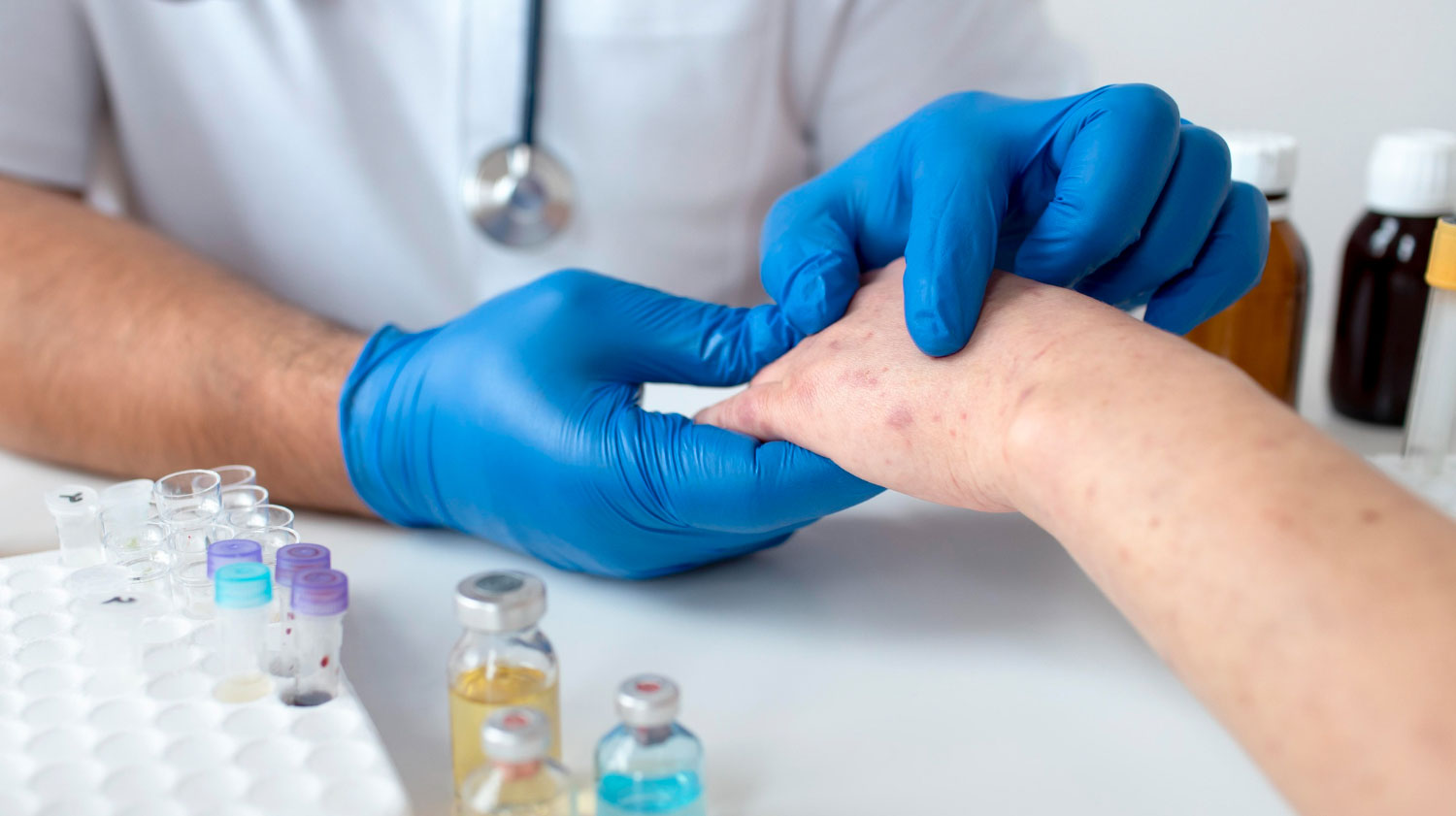
Blog
This Month in Healthcare IT: Remarkable News in September
Achieving leadership in healthcare IT is challenging but defending that top position is a never-ending battle. The key to success lies in developing innovative technologies that make a real difference in millions of lives toward a healthier future by staying informed.
At Tiga Healthcare Technologies, we lead the industry through our global successes by staying informed on reports, regulations and trends. These valuable resources form the basis of our progress and mission to shape healthcare IT with lasting impact.
With this vision in mind, we regularly update our sectoral knowledge and share it with this blog series to ensure healthcare professionals and authorities are always up to date with the most essential healthcare IT developments.
Here are the top 12 news that have positively influenced the healthcare IT from September 2024:
1. The World Health Organization (WHO) and International Telecommunication Union (ITU) published a collaborative report, 'Going Digital for Noncommunicable Diseases: The Case for Action.'

The World Health Organization (WHO) and the International Telecommunication Union (ITU) launched a new report, 'Going Digital for Noncommunicable Diseases: The Case for Action,' at the 79th United Nations General Assembly. The report indicates that an additional investment of $0.24 per patient yearly in digital health interventions, such as mobile messaging and chatbots, can save over 2 million lives from noncommunicable diseases (NCD) over the next decade! This investment could also prevent around 7 million acute events and hospitalizations. Accordingly, the report involves existing WHO guides and recommendations to realize the potential of digital health interventions in supporting the global NCD response with stronger investments by promoting standards and interoperability.
2. Africa CDC and the WHO initiated a comprehensive plan to combat mpox spread in Africa.

The Africa Centres for Disease Control and Prevention (Africa CDC) and the WHO have launched a comprehensive 'Mpox Strategic Preparedness and Response Plan' to address the escalating mpox outbreak in Africa. Following the declarations of a public health emergency by both organizations in August 2024, the plan outlines a coordinated approach to enhance response efforts across the continent. With an estimated budget of nearly $600 million for six months, the plan allocates 55% for mpox response in 14 affected Member States and readiness in 15 others, while the remaining 45% focuses on operational and technical support. This unified strategy aims to eliminate duplication of efforts among stakeholders and maximize impact, reinforcing expertise and mobilizing resources.
The plan emphasizes a community-centered, multisectoral approach customized to the unique epidemiological contexts with categories based on mpox status and risk level, outlining priority actions for each category, which include strengthening surveillance, laboratory detection, case management, vaccination and risk communication.
3. HIMSS introduced its framework for responsible AI governance and implementations in healthcare.

HIMSS has created new guidelines that include principles that will help all governments improve their policies to support AI innovations and address the increasing complexity of healthcare delivery and systems. To encourage responsible governance and application of AI and machine learning (ML) in healthcare, the revised Public Policy Principles outline critical issues such as security, accountability, transparency, privacy, interoperability and workforce development. These principles provide a governance approach that enhances the benefits of AI applications while ensuring they are continuously monitored and re-validated once they are implemented.
4. UNICEF published its 'Digital Health and Information Systems Annual Report 2023,' providing a comprehensive overview of the organization's global digital health initiatives.

UNICEF shared the 'Digital Health and Information Systems Annual Report 2023' report, stressing its key actions such as strengthening primary healthcare capacities, utilizing Geographic Information Systems and training healthcare professionals.
By explaining regional successes across the globe, from East Asia and the Pacific to West and Central Africa, this report reinforces UNICEF's adherence to delivering quality health services to disadvantaged children, adolescents and their families through digital healthcare innovations and data analytics solutions. It demonstrates how UNICEF supports governments, partners and communities with essential knowledge and resources for digital health strategies; this way, it has improved access to and quality health services for at-risk populations, optimizing health outcomes throughout 2023.
Source: https://www.unicef.org/media/161666/file/Annual%20Report%202023-0713.pdf.pdf
5. KLAS Research and Bain & Company released survey findings on healthcare providers' and payers' investment preferences in 'Healthcare IT Spending: Innovation, Integration and AI.'

KLAS Research and Bain & Company released their joint survey findings on IT investment priorities for 150 US healthcare providers and payers. Despite a growing focus on return on investment (ROI), many are open to experimenting with advanced technologies like AI and natural language processing to improve outcomes.
About 75% reported increased IT spending over the past year, with IT infrastructure and services as top priorities, followed by clinical workflow optimization and data platforms. The findings particularly highlight the rising use of AI and machine learning to improve data quality and support clinical decision-making and patient outreach.
Source: https://www.bain.com/insights/healthcare-it-spending-innovation-integration-ai/
6. Lord Darzi examined the National Health Service's critical condition in the 'Independent Investigation of the NHS in England' report, commissioned by the Secretary of State for Health and Social Care.

Lord Darzi, a member of the UK House of Lords, investigated the state of the National Health Service (NHS) at the request of the UK government and presented his findings in the report 'Independent Investigation of the NHS in England.' He considered the available data to assess patient access to healthcare, the quality of healthcare delivery and the NHS's overall performance.
The report shows the critical condition of the NHS, especially in terms of managerial capability and waiting times. Lord Darzi indicates these areas for repairing healthcare delivery: empowering patients and healthcare professionals with new multidisciplinary care models focusing on technology, specifically AI, for new treatment methods.
Source: https://www.gov.uk/government/publications/independent-investigation-of-the-nhs-in-england
7. KLAS Arch Collaboration published an impact report titled 'EHR Interoperability 2024,' exploring clinician experiences with electronic health records (EHR) interoperability and what needs to be done for improvements.

The recent KLAS Arch Collaborative report, EHR Interoperability 2024, captures insights from over 33,000 clinicians, marking the first time clinician views on EHR interoperability are emphasized. The report highlights satisfaction levels with external integrations, as well as challenges and improvements needed for accessing quality data and best practices from top healthcare organizations. Notably, 47% of respondents stated they struggle to find crucial patient information from outside organizations quickly and another 47% reported dealing with duplicate data when doing so.
Source: https://klasresearch.com/archcollaborative/report/ehr-interoperability-2024/604
8. The Pan American Health Organization (PAHO) and the African CDC collaborate to ensure equitable access to medicines, vaccines and health technologies.

The Pan American Health Organization (PAHO) and the African CDC have partnered to enhance equitable access to vaccines, medicines and required health technologies. This collaboration combines their expertise and utilizes PAHO’s Regional Revolving Funds to strengthen regional regulatory frameworks, innovation and production capabilities. This collaboration will also contribute to establishing a pooled procurement system in Africa and support local manufacturing of essential medicines, vaccines and public health supplies for Africa and the Americas.
Additionally, the two organizations will work together to promote research, drive innovation and facilitate the digital transformation of health systems. This initiative addresses current and future population health challenges while improving prevention, preparedness and response strategies for health emergencies with the help of technology.
9. The Pan American Journal of Public Health published a call toward digital transformation of health in the Region of the Americas, titled, 'Together Towards Tomorrow: Partnerships Powering the Digital Transformation of the Health Sector.'

The recent Pan American Journal of Public Health editorial, 'Together Towards Tomorrow: Partnerships Powering the Digital Transformation of the Health Sector,' emphasizes a shared vision for unity, innovation and collaboration to build more resilient and equitable health systems in the Region of the Americas. With contributions from researchers at PAHO, the Inter-American Development Bank, the World Bank, UNICEF, WHO and the Brazilian Ministry of Health, the editorial calls on the global health community to benefit from alliances and international cooperation to conduct in a new era for digital transformation in the health sector. Also, it argues that digital health is not merely a technological upgrade but represents a cultural shift in how healthcare is delivered, experienced and conceptualized toward more open, collaborative, digital and patient-centered.
Researchers argue that healthcare technologies like EHRs, mobile health applications and AI aim to improve healthcare and accessibility. Still, they stress that success depends on enhancing digital literacy, securing digital infrastructures and updating regulations to create a more equitable system where healthcare is accessible anytime, anywhere.
Source: https://iris.paho.org/bitstream/handle/10665.2/61353/v48e852024.pdf?sequence=1&isAllowed=y
10. Health New Zealand (Te Whatu Ora) announced an important National Health Index (NHI) format update.

Health New Zealand (Te Whatu Ora) introduced a new National Health Index (NHI) format that will be effective on 1 July 2026 to improve patient identification efficiency in the healthcare systems country-wide. The NHI, a unique identifier assigned to individuals from birth or their first healthcare system interaction, plays a crucial role in linking patient health information and supporting effective healthcare delivery. While the update will primarily affect new babies and first-time healthcare users, it will not impact existing NHI numbers.
The key change involves shifting from the current format (AAA111#) to a new structure (AAA11A#), expanding the capacity from 10 million to 33 million identifiers. Both formats will coexist to ensure a smooth transition. Health IT suppliers must update their systems and processes to support the new format by the 1 July 2026 deadline. Suppliers are responsible for communicating the necessary upgrades to their clients to ensure compliance.
11. The Commonwealth Fund released the 8th edition of 'Mirror Mirror' report titled, 'A Portrait of the Failing US Health System, Comparing Performance in 10 Nations.'

The Commonwealth Fund's ‘Mirror Mirror 2024: A Portrait of the Failing U.S. Health System’ compared the healthcare systems of 10 countries, including Australia, Canada, France, Germany, the Netherlands, New Zealand, Sweden, Switzerland, the UK and the US. The analysis evaluated 70 health system performance indicators in five key areas: accessibility, healthcare delivery processes, administrative efficiency, equity and health outcomes.
The US continues to underperform in many ways compared to the other nine countries. The report indicates the need for major reforms and improvements, especially in the primary care system, including healthcare technologies, for more accessibility and equity. The research mainly suggests AI and remote monitoring, which have huge potential for minimizing administrative inefficiencies and significantly improving overall.
Source: https://www.commonwealthfund.org/publications/fund-reports/2024/sep/mirror-mirror-2024
12. Singapore aims to revolutionize healthcare delivery with AI-powered diagnostics and electronic health records (EHR) integration.

Singapore's Health Minister Ong Ye Kung announced that general practitioners (GP) would use AI-powered diagnostic methods to warn patients about their potential health risks, prescribe appropriate drugs and recommend necessary lifestyle changes. This system, which is expected to be implemented in the coming years, will be powered by vast data sources, including EHR, genetic information and lifestyle data.
Additionally, healthcare authorities and regulatory bodies have intensified efforts to improve the National Electronic Health Record system, aiming to consolidate patient healthcare and lifestyle data from all medical facilities. Starting in 2025, participation in this system will be mandatory for all healthcare providers. These endeavors underscore the urgency and importance of these upcoming changes in the healthcare landscape.

The current news once again highlights the urgent need to advance healthcare technologies, creating clear and customizable action plans for a better future. With 17 years of experience and a comprehensive range of products, we're here to support you every step of the way!
As the WHO and ITU report emphasizes the importance of 'going digital for noncommunicable diseases,' our Chronic Disease Management System is ready to support centralized disease management; additionally, Predis enhances population health management through many data-driven methods, like disease spread forecasts, disease pattern and trend identification and predictive analytics. AI, the ever-evolving trend in healthcare IT, remains a global priority, from Serbia, Singapore and the UK to the UAE, the US and India. We are proud to offer our AI & Analytics product family, which is dedicated to the responsible use of AI, in line with HIMSS' updated guidance on security and ethical standards.
Additionally, our Personal Health Record (PHR) System enhances EHR consolidation and patient engagement, addressing the needs of many countries. Our Healthcare Interoperability product family enables healthcare providers, payers and professionals to access and utilize these EHRs in interoperable, customizable formats, ensuring seamless and efficient care.
To summarize, as discussions around the readiness for new pandemics and epidemics intensify, the global focus is on strengthening healthcare IT to address evolving sector demands and complex healthcare challenges. We adopt this responsibility and vision through our comprehensive range of product families, including Healthcare Interoperability, Patient Engagement, Drug Traceability, AI & Analytics, Prescription & Medicine Management, Population Health Management, Personalized Healthcare and Hospital Information System!
Our passion for a healthier future through healthcare IT drives us to dream big and work tirelessly to create a brighter future for every stakeholder.
Let's shape the future together with the power of enhanced healthcare IT, as always!









